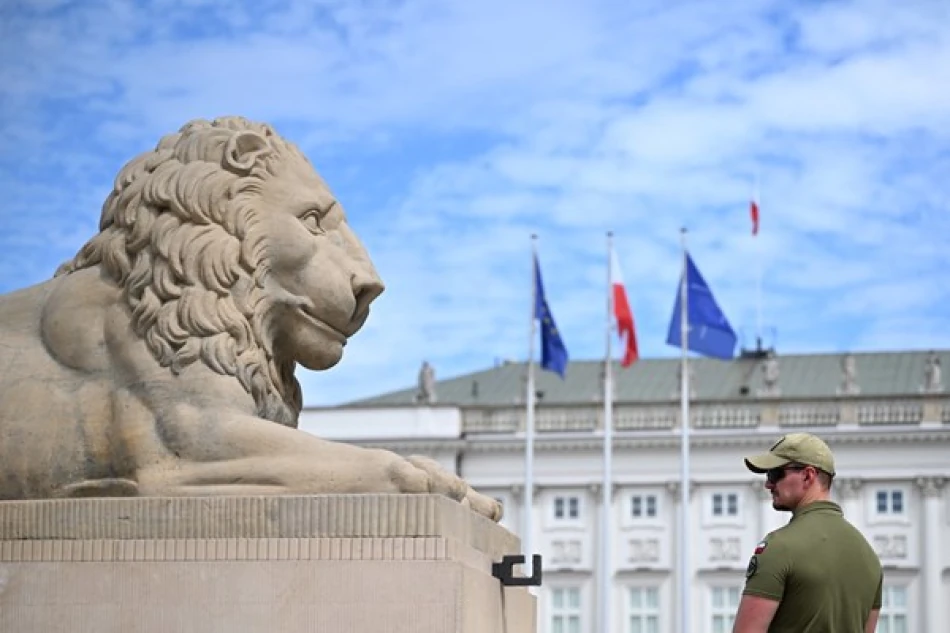
Poland's Newly Elected President Takes Oath of Office
Poland's New Populist President Takes Power, Setting Stage for Political Confrontation
Poland inaugurates its youngest president in decades today as 42-year-old historian Karol Nawrocki assumes office, marking a potential return to the nationalist policies that defined the country's politics for nearly a decade. Backed by the opposition Law and Justice party, Nawrocki's victory in June's runoff election sets up an inevitable clash with the current pro-EU government and could reshape Poland's role in European affairs.
A Historian's Path to Power
Nawrocki's rise represents a significant shift in Polish politics. The independent historian secured his victory with the backing of Law and Justice (PiS), the party that governed Poland from 2015 to 2023 under increasingly authoritarian policies that put Warsaw at odds with Brussels over judicial independence and media freedom.
His election comes at a crucial moment for Poland, which has been trying to rebuild its relationship with the European Union after years of legal battles and frozen EU funds under the previous PiS government. The current ruling coalition, led by Donald Tusk's Civic Platform, had been working to restore democratic norms and repair ties with European partners.
Presidential Powers That Matter
Poland's presidency carries substantial constitutional authority that could allow Nawrocki to significantly influence the country's direction. As commander-in-chief of the armed forces, he will have direct input on military decisions at a time when Poland has become NATO's eastern bulwark against Russia following the Ukraine invasion.
The Veto Weapon
Perhaps most critically, Nawrocki's veto power over parliamentary legislation could paralyze the current government's reform agenda. This mirrors the political gridlock seen in other European countries where populist presidents have clashed with centrist governments, such as in Romania under former president Traian Băsescu.
Implications for Europe and Markets
Investors and EU officials will be watching closely for signs of renewed confrontation. Poland's previous disputes with Brussels led to billions in EU funds being frozen, creating uncertainty for Polish markets and the zloty currency. Any return to judicial reforms that conflict with EU law could trigger similar financial consequences.
The timing is particularly sensitive as Poland has been positioning itself as a key player in European security policy, hosting significant NATO forces and serving as a crucial transit route for Western military aid to Ukraine. Nawrocki's foreign policy stance could influence these strategic relationships.
A Test of Democratic Resilience
Nawrocki's presidency will test whether Poland's democratic institutions can withstand another period of populist governance. Unlike Hungary's Viktor Orbán, who controls both executive and legislative power, Nawrocki will face a hostile parliament and government, potentially limiting his ability to implement sweeping changes.
This divided government structure could either force compromise and moderation or lead to institutional paralysis that weakens Poland's ability to address pressing economic and security challenges. The outcome will likely influence similar political movements across Central Europe, where populist parties continue to challenge liberal democratic norms.
Most Viewed News

 Layla Al Mansoori
Layla Al Mansoori






